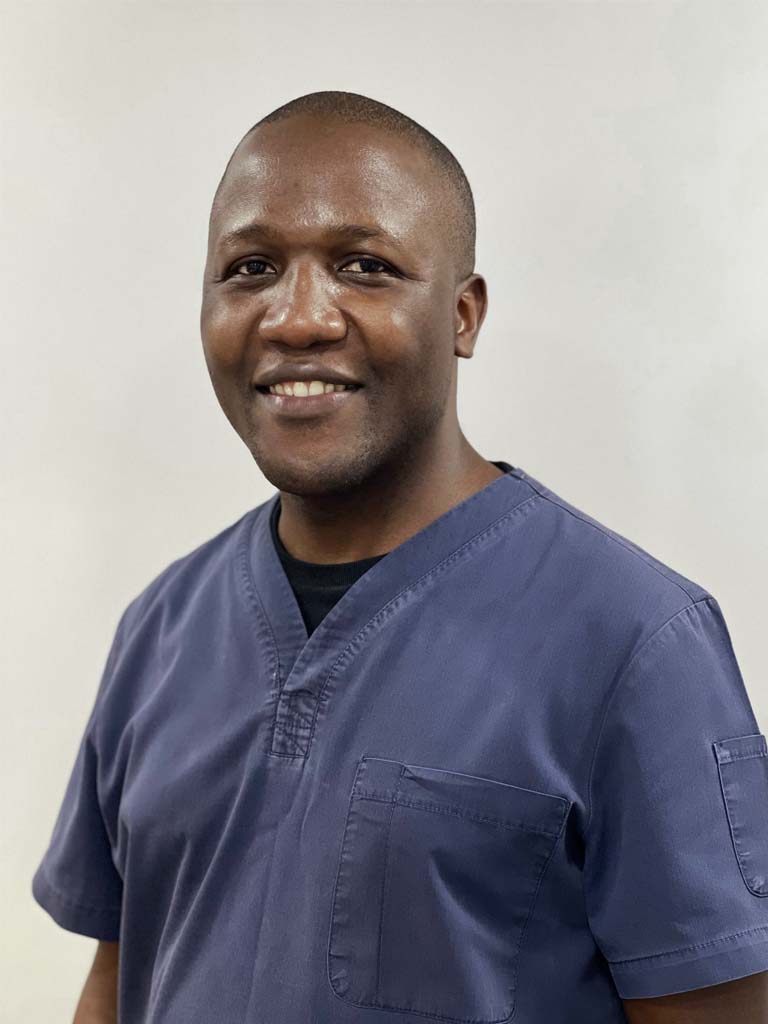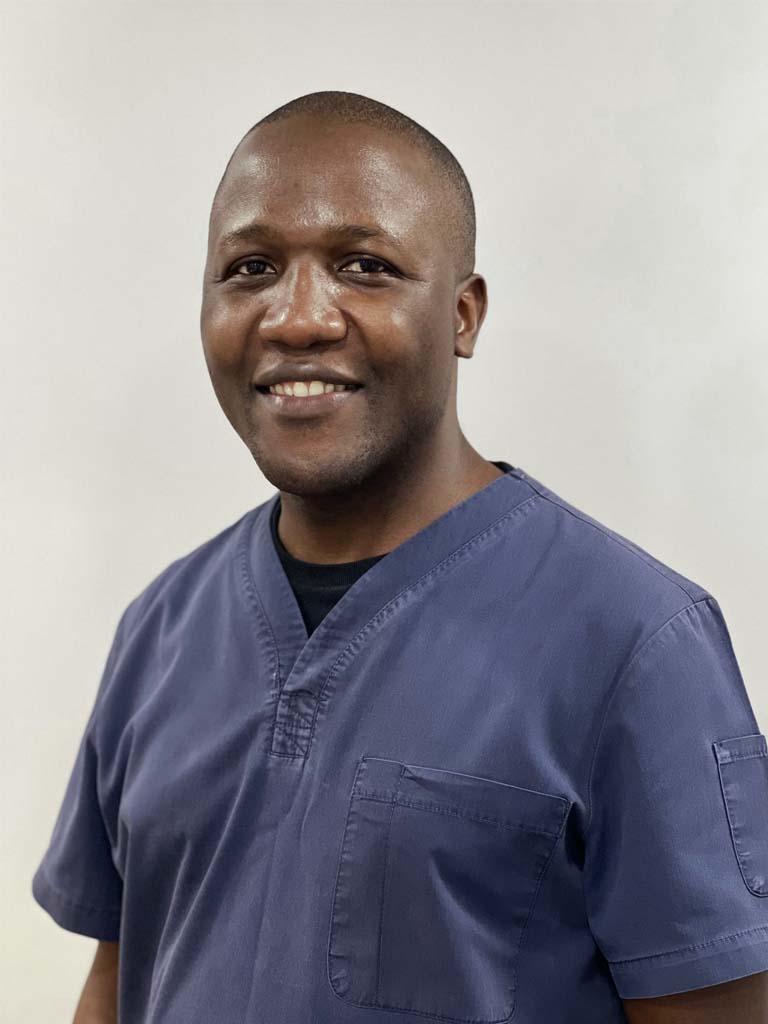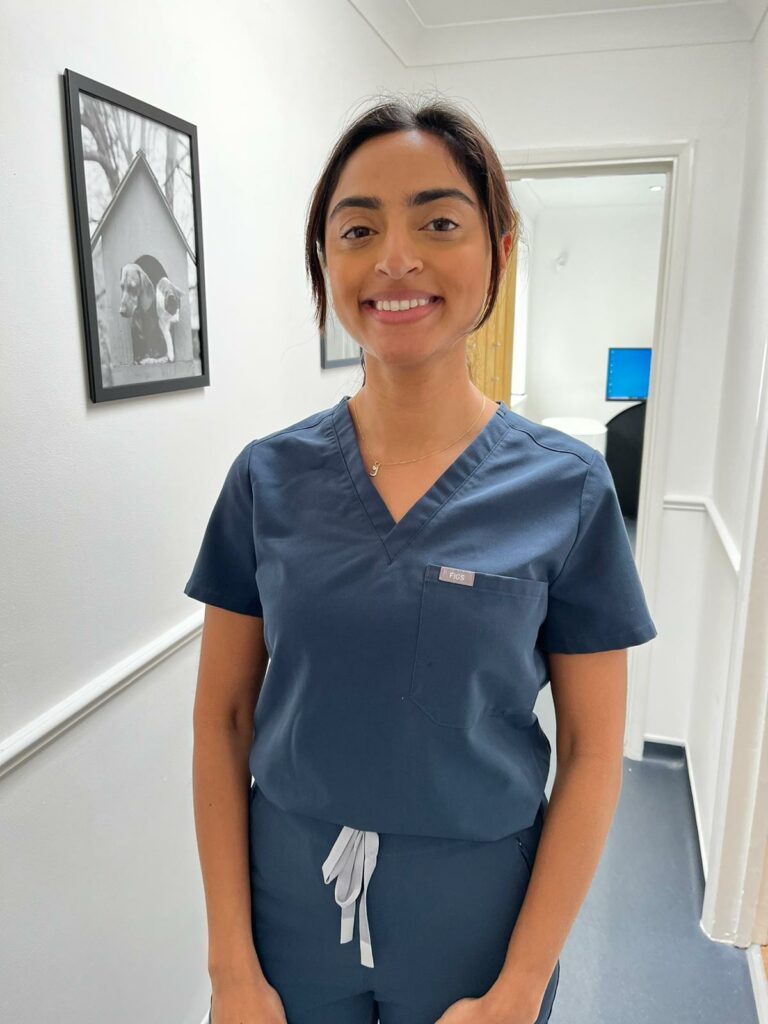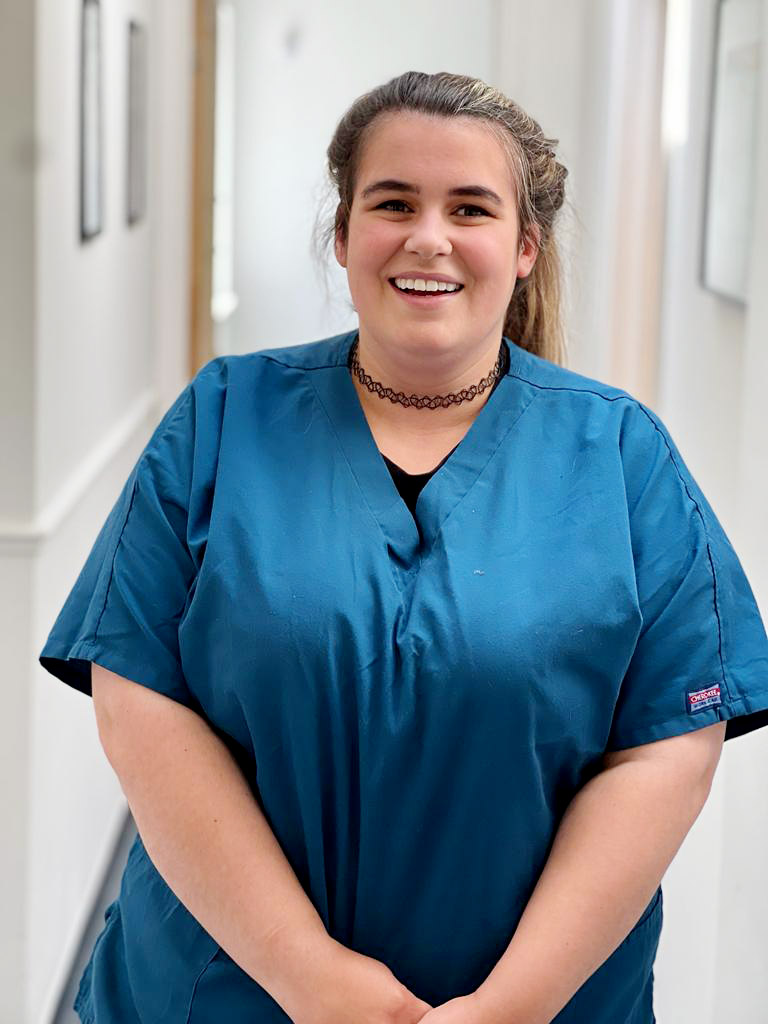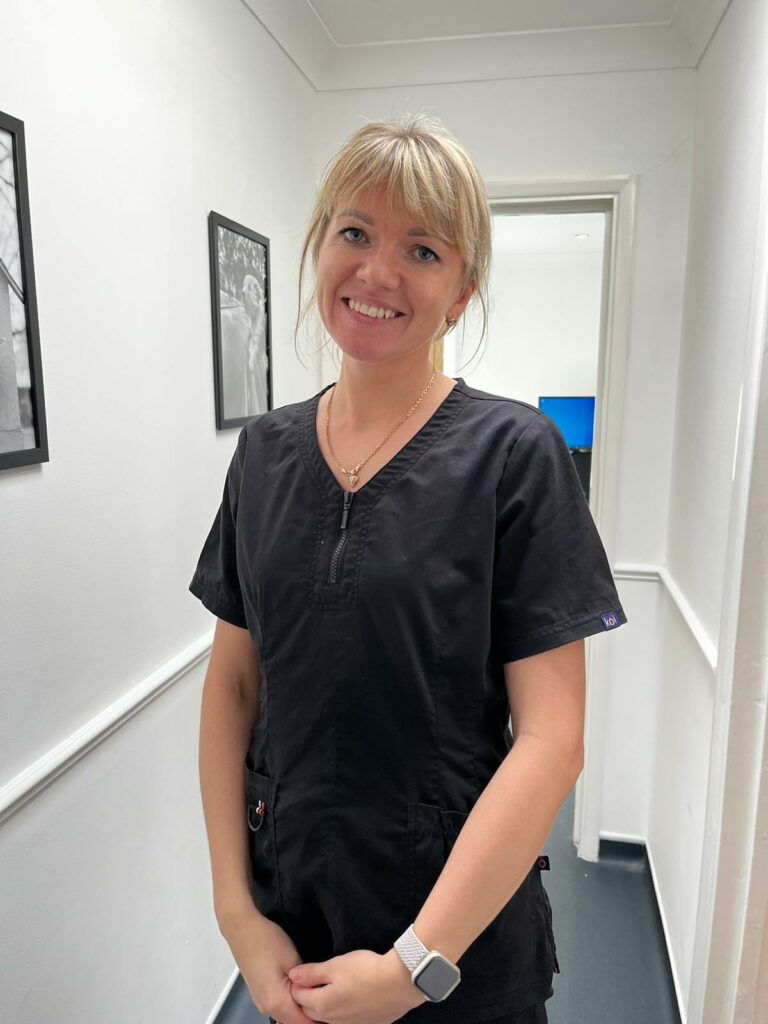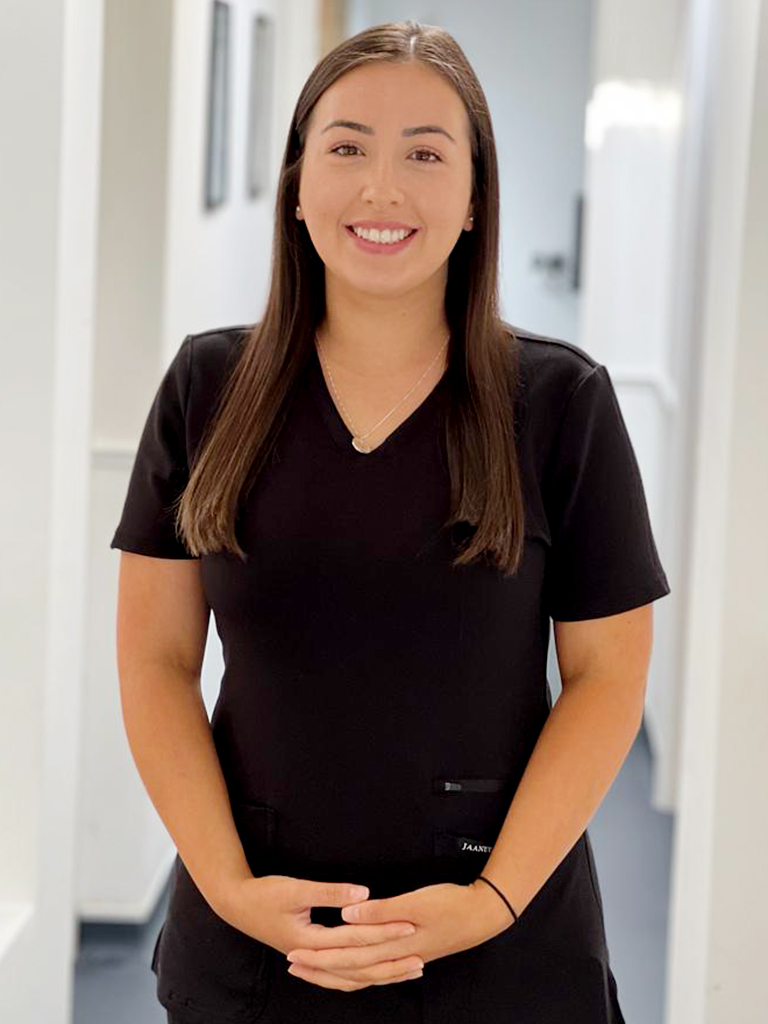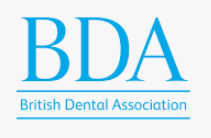Dental Implants by Experienced & Gentle Dentist in Wye, Kent
From single dental implants to
full-mouth missing teeth treatment options, we are here to help you eat and smile with confidence.
Missing or damaged teeth?
We don’t need to remind you how disruptive that can be. Having missing teeth can impact the way you eat and speak, which can in turn impact your confidence.
Being nervous about biting into your favourite food is anxiety you no longer have to live with. Our comfortable dental implant procedure is provided by experienced implant dentists who have extensive experience with implants.
A long-lasting screw is embedded directly into your jaw and bonds with the bone. Implants can replace a single tooth or all.
Once your implant is integrated (which can take a few months), it will look and feel exactly like your natural tooth -making chewing and smiling anxiety-free.
They stay in place and don’t require removal for cleaning or eating just the same brushing, flossing, and regular dental checkups as natural teeth. And with proper care, your new dental implant can last a lifetime, making it a very worthy investment.
Welcome to Wye Dental Surgery in Kent
Missing or damaged teeth?
We don’t need to remind you how disruptive that can be. Having missing teeth can impact the way you eat and speak, which can in turn knock your confidence.
Being nervous about biting into your favourite food is anxiety you no longer have to live with. Our comfortable dental implant procedure is provided by experienced implant dentists who have extensive experience with implants.
A long-lasting screw is embedded directly into your jaw and bonds with the bone. Implants can replace a single tooth or all.
Once your implant is integrated (which can take a few months), it will look and feel exactly like your natural tooth -making chewing and smiling anxiety-free.
They stay in place and don’t require removal for cleaning or eating just the same brushing, flossing, and regular dental checkups as natural teeth. And with proper care, your new dental implant can last a lifetime, making it a very worthy investment.
Detailed Treatment Plan
*For Consultations, a £82 fully refundable deposit is required. We require 24 hours notice should you need to cancel a consultation. This allows us to assign the surgery-chair time to other people.
Your Free Consultation Explained
The Implant Consultation fee is £82 and this will be refundable if you cancel within 24 hours notice.
The £82 consultation fee will be taken off the cost of treatment if you decide to go ahead.
Implant Consultation includes:
- Approx. 30-45 minutes with our Implant Dentist Dr. James David Ogwang
- Photos of your teeth
- Digital Scan of your teeth
- Comprehensive treatment plan with options
Missing Teeth Options in Kent to
Improve Your Smile and Chewing Ability
From Single Missing Teeth to full Mouth Reconstruction
We use the latest 3D Implant Panning Techniques
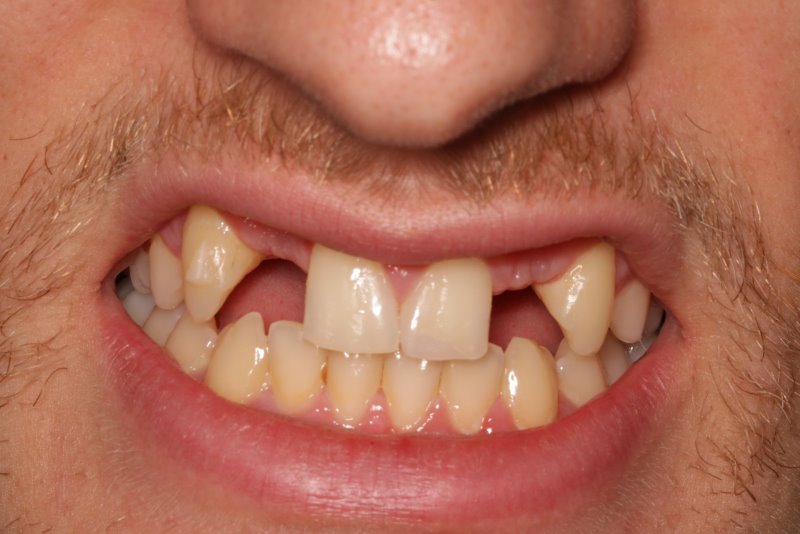
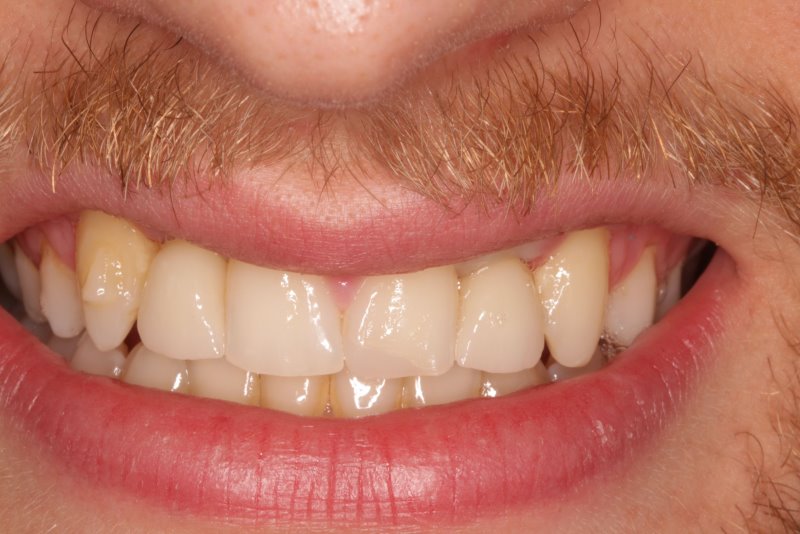
Implant case by Wye Dental surgery
Implant Consultation
- Your initial consultation is free with a dentist.
- The Implant Consultation fee is £82 and this will be refundable if you cancel within 24 hours notice.
- Consultation fee will be taken off the cost of treatment if you decide to go ahead.
Consultation Includes:
- Approx. 30-45 minutes with our Implant Dentist
- Photos of your teeth
- Digital Scan of your teeth
- Comprehensive treatment plan with options
Single Tooth Dental Implant
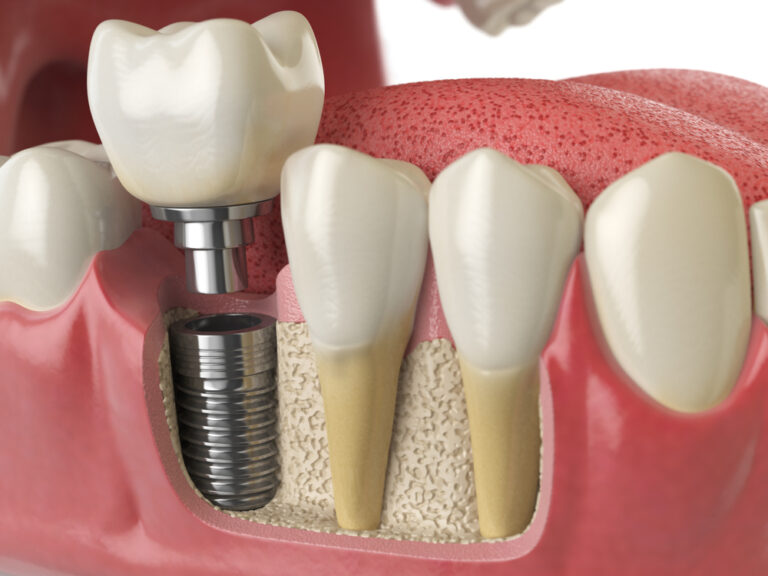
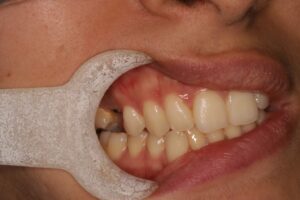
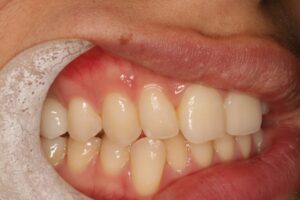
Single dental implants for individual missing teeth.
You won’t be left with a visible gap at any stage of treatment.
Includes:
- Consultation
- CBCT Scan & Detailed treatment planning
- Dental Implant and Bespoke Crown
- 1 follow-up appointment in first year
Dental Implant + Crown: £2,600 £2,800
or From £216,67/Month*
(*Monthly payment example based on 9.9% APR over 60 months) 0% Finance also available up to 3 years.
Multiple Dental Implants
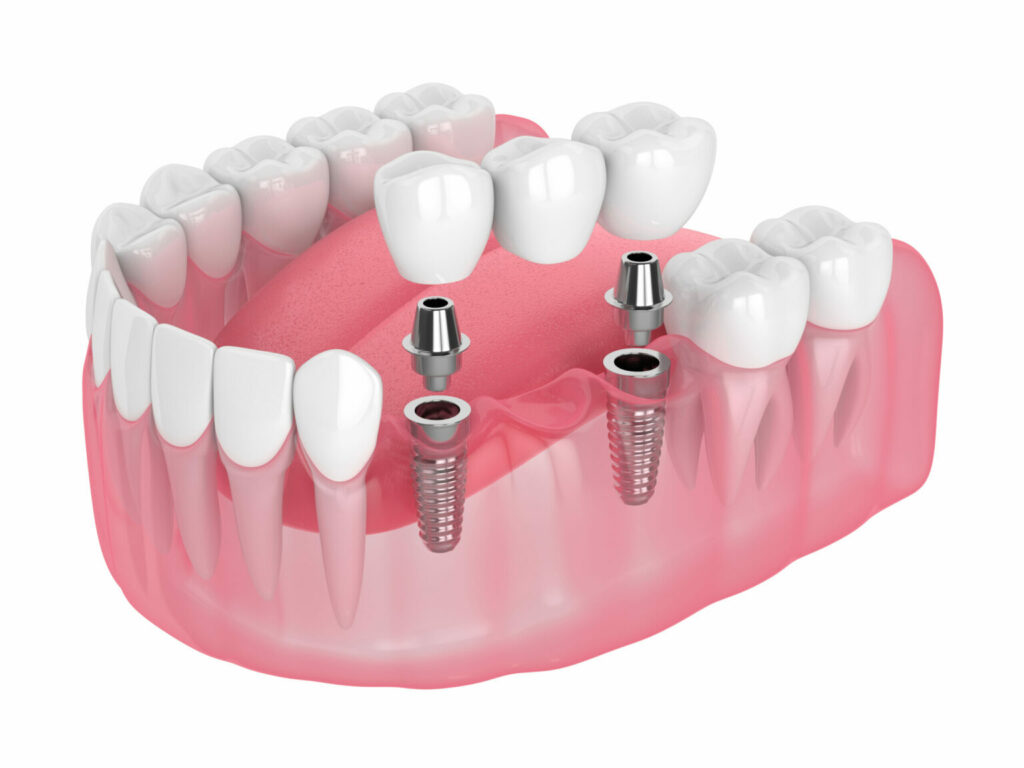
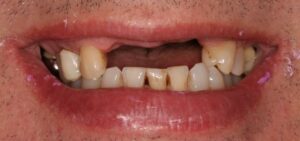
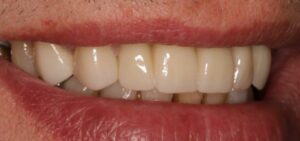
Replacing larger gaps using 2 implants to support 3 missing teeth. 3-unit-bridge is designed to match existing teeth.
Includes:
- Consultation
- CBCT & Detailed treatment planning
- 2 Implants and a 3 Unit Bridge
- 1 follow-up appointment in first year
2 implants and 3 bridge unit: £6,000
or From £500/Month*
Implant Retained Dentures
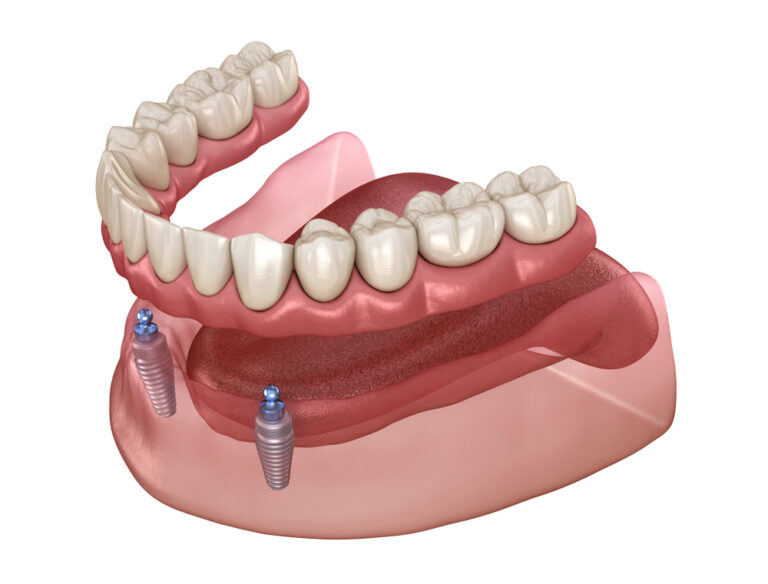
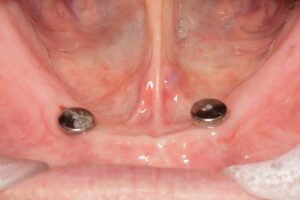
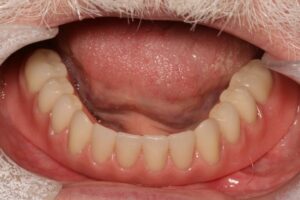
A set of custom-made removable dentures, which unlike conventional dentures are highly stable and preserve your jawbone.
Ideal for those who would like to replace their dentures with a new, stable and aesthetically pleasing set.
Includes:
- Free no-obligation Consultation
- Detailed treatment planning
- Denture fixed with Implants
- 2 follow-up appointments in first year
Full Mouth Implants / Same Day Teeth
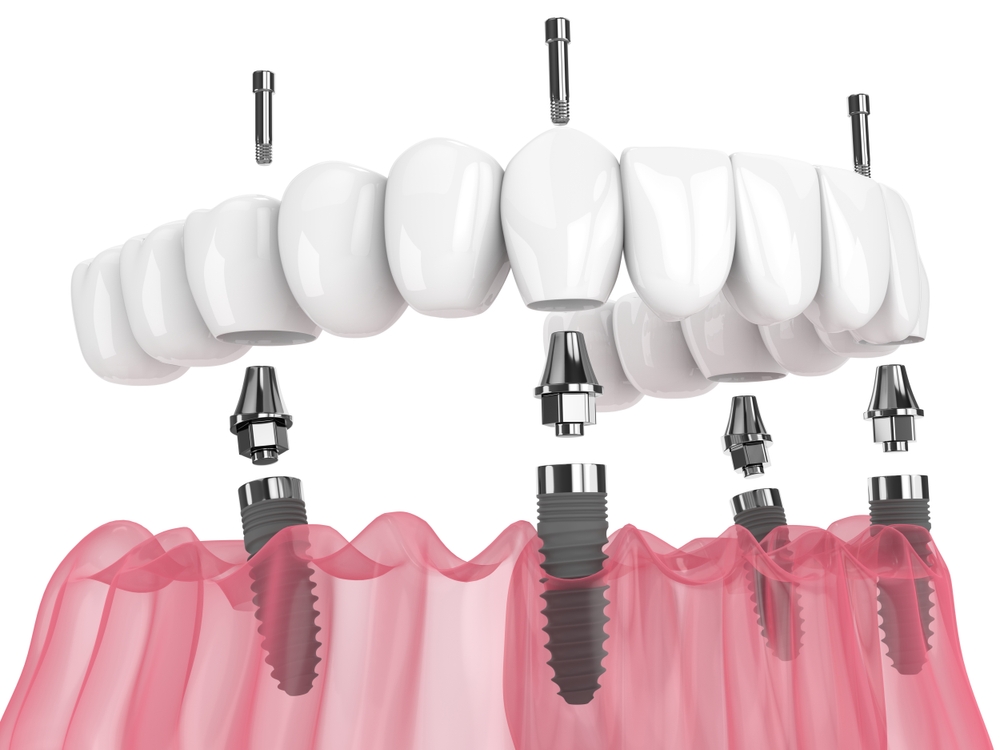
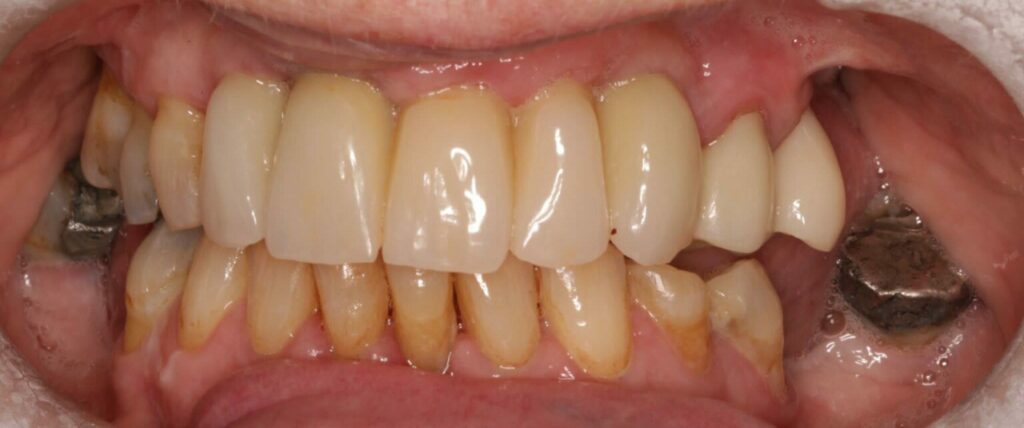
A treatment for replacing many or all missing teeth. 4-6 implants are used to support a dental bridge for each jaw,
Patients will not have to go without teeth during any stage, as treatment is performed in just a single day.
This treatment can also be available for patients who have been told that they do not have enough jaw bone.
Treatment Includes
- Consultation
- CBCT & Detailed treatment planning
- Same-day Temporary Bridge
- Teeth Extractions and bone grafting (if required)
- Final Dental bridge fixed with 4-6 implants
- 2 follow-up appointments in first year
Full mouth implants (same day): From £16,500
or From £1,375/Month*
Speak to us today
we are sure we can help
In-house CT Scanner for Your Convenience
Offering precise digital implant placement and quicker treatment times

Bone Grafting & Sinus Lifts
Meet Your Implant Dentists
Dr James David Ogwang
Implant Surgeon
GDC No: 207102

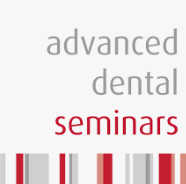

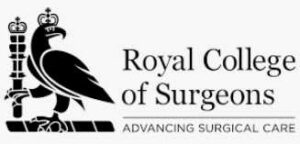
James is passionate and comfortable with all aspects of dentistry.
He is particularly keen on Dental implant dentistry, composite bonding, Invisalign, ceramic veneers, oral surgery, and complex full mouth rehabilitation.
He enjoys getting to know his patients and takes a genuine interest in their general wellbeing which invariably influences their treatment.
Dr. Ogwang graduated in 2007 and worked across many practices in London before settling in Kent.
He did further Cosmetic and Aesthetic training at the Advanced Dental Seminars under Dr. Chris Orr in London. He did his formal implant training at the prestigious Royal College of Surgeons where he won the DENTSPLY Sirona Award for the best case presentation.
James took over at Wye Dental in 2022 and is now the principal owner of Wye Dental Implant Centre and Invisalign Centre.
In his free time, James loves to spend time with his young family, listen to classical music painting in oils and is trying to improve his tennis game albeit in vain.
Dr Jimmy Kafeero
Implant Surgeon
BDS (2003), IQE (2005), PG Diploma in Implant Dentistry (Eastman- UCL) 2014, Dip Imp Dent RCSEd (2014), AssocFGDent.
GDC No: 100840
Jimmy qualified from Makerere University Uganda in 2003. During the same year he moved to the UK and completed the General Dental Council’s International Qualifying examinations (IQE ) in 2005 .
He then worked in general practice for 5 years before enrolling for a 3 year Post graduate Diploma in Implant Dentistry at the Eastman Dental Institute University College London , which he completed with a Distinction in 2014.
He additionally holds a Diploma in Implant Dentistry of the Royal College of Surgeons of Edinburgh completed in 2014.
From 2012 to date, he has been an Educational Supervisor for dental foundation training with Kent, Surrey, Sussex (KSS) and later London and Kent Surrey, Sussex (LaKSS) post graduate dental deaneries, helping in mentoring of newly qualified dentists.
As part of his sharing of implant skills and knowledge he mentors colleagues in training and those starting out in the field of implant dentistry.
He has a special interest in implant dentistry offering from a single tooth placement and restoration to full mouth rehabilitation.
He has extensive experience in complex implant dentistry .
Outside dentistry, he enjoys spending time with family and watching football.
Professional Memberships:
-Member British Dental Association.
-Associate Fellow College of General Dentistry.
Dr Manisha Mathi
General Dentist and Sedationist
GDC No: 277532

Since qualifying from Peninsula School of Medicine and Dentistry, Manisha has worked across Kent and Surrey and has had experience in dental practice as well as hospital settings.
This has helped her gain extensive oral surgery experience as well as accreditation in dental sedation. To further her sedation proficiency, she has undertaken a post-graduate diploma in Conscious Sedation at the prestigious King’s College London treating patients who are medically compromised and severely dental phobic.
Manisha has a caring and calming nature which often helps anxious patients feel at ease. She most enjoys meeting new people, winning around nervous children and giving patients confidence by helping to create their smile. Manisha is an Invisalign provider and is also currently undertaking a post- graduate diploma in Restorative and Aesthetic Dentistry under Dr Monik Vasant in London.
She is committed to continuous development and education which is reflected in her post-graduate qualifications and publications in numerous journals such as The International Journal of Paediatric Dentistry, The Nursing Times, and The Faculty Dental Journal.
Outside of work, Manisha loves spending time with her family and friends, travelling to experience new cultures/cuisines and a good cricket match!
Your Dental Implant Journey at Wye Dental Surgery, Kent
1. Initial consultation:
- A full and thorough examination of your mouth to assess suitability for treatment
- Discussion about which implant treatment will be suited to you
- Photos of your teeth
- Digital Scan of your teeth
- Comprehensive treatment plan with options
- Lasts approx. 30-45 minutes with our Implant Dentist Dr. James David Ogwang
2. Smile design and preparation:
- Collection of diagnostic information such as CT scans of your jaw to give us an analysis and picture of your jawbone’s health and shape.
3. Surgical placement of the implants:
- Surgical placement of the implant under local anaesthetic.
- The area is then left to heal until it is ready to support a restoration.
4. Creating your restoration and new smile:
- Impressions of your teeth are taken
- Your custom restoration is created.
5. Fitting your tooth-restoration
- Your crown, bridge and / or dentures will be fitted.

What Our Patients Say

I could not recommend Wye Surgery enough. The team is very professional
and friendly. James always takes the time to explain what he is going to do. As well as being very competent and knowledgeable in his field, he is also very kind and attentive, and his bedside manners are impeccable. During the procedures, I feel comfortable and I am always leaving pleased with the work done. 5* indeed.
Christel Knight⭐⭐⭐⭐⭐
The team at Wye Dental are all so friendly and nice.
I had a filling today and both Jess the dentist and the dental nurse were considerate of my welfare, asking how I was feeling and were very reassuring throughout the procedure.
I would highly recommend this surgery to others.
MaryClare Calver⭐⭐⭐⭐⭐
I attended the dental surgery this morning feeling very unhappy with the appearance of my smile. I left feeling so much better. I’m extremely pleased with the outcome. Not only was the technical result Great and the treatment pain free, everyone was friendly, professional and inclusive. I would highly recommend this practice.
Sue⭐⭐⭐⭐⭐
I highly recommend Wye dental practice, a spotless, caring environment staffed by professionals who care about what they are doing, from the receptionist to the dental nurse
I saw James, a dentist willing to listen and explain, obviously knowledgeable & capable he created a calm, confident environment allowing me to relax.
Gill Miles⭐⭐⭐⭐⭐
James and his staff put you completely at ease before any treatment, explaining details and procedures. James is gentle, professional and a perfectionist, making sure you are totally happy with the results.
Tim Allen⭐⭐⭐⭐⭐
Previous
Next
Address
Wye Dental surgery,
Little Chequers,
Wye,
Ashford TN25 5DX
Opening Times
Monday – Thursday: 8.30am – 5pm
Friday: 8.30am-4pm
Saturday: By Appointment



